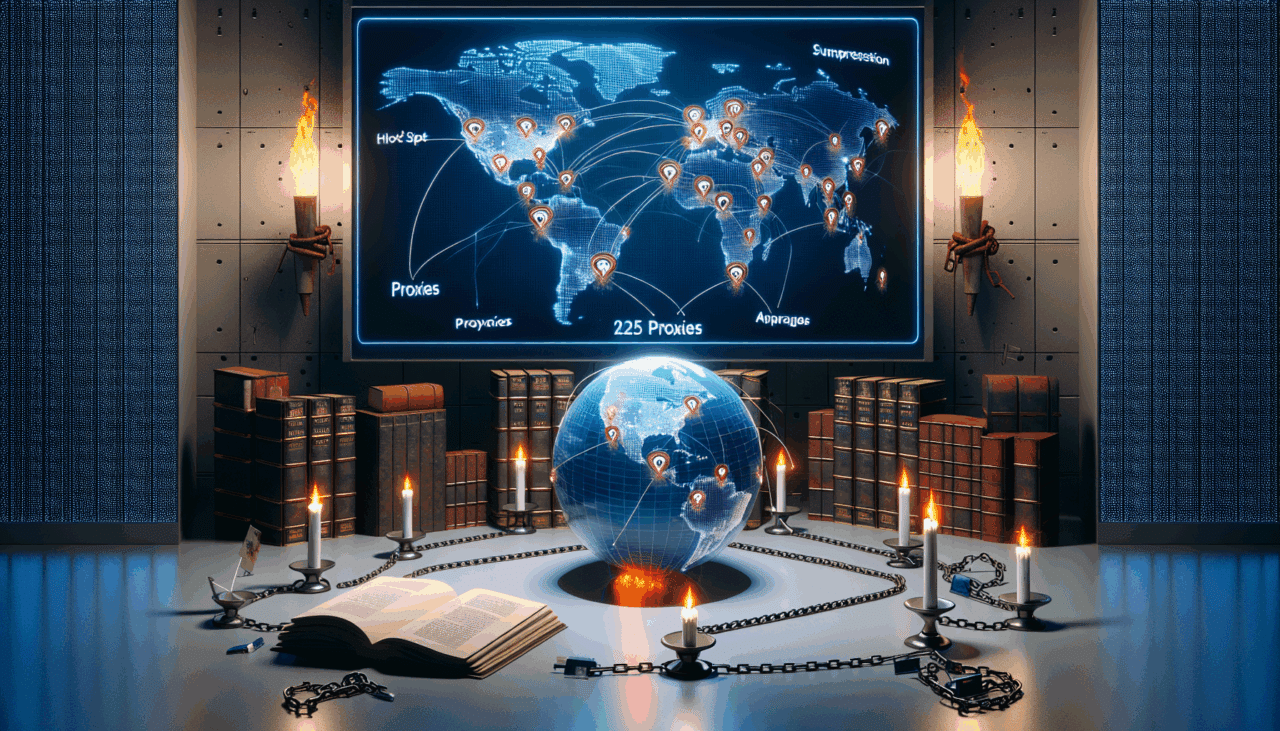In the world of 2025, where digital borders are as significant as physical ones, the entanglement of geopolitics and censorship shapes the demand for proxies. This narrative is reminiscent of an ancient Uzbek proverb: “Wisdom is like a baobab tree; no one individual can embrace it.” As we navigate the complexities of modern technology, we must draw from the past to understand the present. The nexus of geopolitical tensions and state-imposed censorship drives a burgeoning demand for proxies, a demand that is both a reflection of and a response to the global digital landscape.
The Geopolitical Landscape of 2025
The year 2025 is marked by a world that is increasingly polarized. Nations are leveraging digital tools to assert dominance, control narratives, and protect national interests. Bakhodir, with his analytical mindset, would liken this to the strategies of ancient empires that used both diplomacy and conflict to expand their influence. In this digital era, proxies have become the modern equivalent of ancient trade routes and secret passages, facilitating the flow of information while circumventing barriers.
Table 1: Major Geopolitical Developments Affecting Proxy Demand
| Region | Geopolitical Event | Impact on Proxy Demand |
|---|---|---|
| North America | Enhanced cybersecurity measures | Increased demand for secure proxies |
| Europe | Data sovereignty regulations | Growth in regional proxy services |
| Asia | Internet censorship laws | Surge in anonymous proxy usage |
| Middle East | Political instability | Demand for proxies to access global media |
| Africa | Digital infrastructure expansion | Rising need for content access proxies |
The Role of Censorship
Censorship, a tool as old as governance itself, finds new life in the digital age. In 2025, countries employ sophisticated algorithms and AI-driven filters to control the flow of information. Bakhodir might draw a parallel here with the ancient practice of storytelling, where the tales allowed to be told shaped cultural narratives and societal norms. In a similar fashion, modern governments seek to shape public opinion by controlling digital narratives.
Code Snippet: Simple Proxy Setup
For those seeking to bypass censorship, setting up a basic proxy server can be a first step. Below is a simplistic example using Python:
import socket
def start_proxy_server(host='127.0.0.1', port=8080):
with socket.socket(socket.AF_INET, socket.SOCK_STREAM) as server_socket:
server_socket.bind((host, port))
server_socket.listen(5)
print(f"Proxy server running on {host}:{port}")
while True:
client_socket, addr = server_socket.accept()
print(f"Connection from {addr}")
handle_request(client_socket)
def handle_request(client_socket):
request = client_socket.recv(1024)
print(f"Received request: {request}")
# Forward request to the intended server
# Send back response to client
client_socket.close()
start_proxy_server()
Cultural Nuances and Proxy Utilization
The demand for proxies is not merely a technical or political issue; it is deeply intertwined with cultural nuances. In Uzbekistan, for instance, the tradition of “mahalla” (community) underscores the importance of shared knowledge and mutual support. In a digital context, this translates to communities coming together to share resources and information, often through the use of proxies to access restricted content.
Historical Anecdote: The Silk Road Parallel
Consider the Silk Road, the ancient network of trade routes that connected the East and West. Just as merchants and travelers once relied on these routes to exchange goods and ideas, modern users rely on proxies to traverse digital landscapes. The Silk Road was not just a trade route but a conduit for cultural exchange—much like proxies in today’s world, which facilitate not only access to information but also the exchange of ideas across borders.
Conclusion
In 2025, the interplay of geopolitics and censorship creates a dynamic environment where the demand for proxies continues to grow. By understanding this demand through historical parallels and cultural insights, we can better appreciate the role of proxies in maintaining the free flow of information. As Bakhodir might conclude, “In the embrace of the past, we find the keys to the future.” The wisdom of ancient proverbs guides us as we navigate the complexities of the digital age, ensuring that the pursuit of knowledge remains unbounded by borders.

Comments (0)
There are no comments here yet, you can be the first!